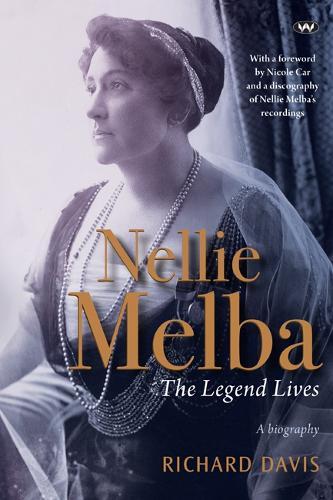Letters to the Editor - October 2011
Declaring an interest
Dear Editor,
No doubt one of the spin-offs for those who commission and read book reviews is the jousting or arm-wrestling following the publication of a review that is contested by an aggrieved writer. An instance of such jousting appears in the Letters column of your September 2011 issue, when Eileen Chanin defended her recent biography Book Life: The Life and Times of David Scott Mitchell against the magisterial but waspish filleting of her work by Paul Brunton in the July–August 2011 issue.
I am not writing here to defend Chanin’s book, but I think she is entitled to feel aggrieved that her reviewer’s special interest in the subject was not declared, with Brunton describing himself innocuously and modestly merely as a ‘Sydney-based archivist and librarian’. It is only in ABR Online Edition that we are told of Brunton’s role in curating a major exhibition on Mitchell in 2007.
Brunton’s own long professional association with the Mitchell collections in the State Library of New South Wales is not mentioned; nor, as Chanin now complains, is there any indication that Brunton served de facto in the role of an institutional host and colleague during her tenure (2007–08) of the C.H. Currey Memorial Fellowship at the State Library of New South Wales while working on the biography.
I think readers of ABR should be alerted to any special interest which either colours a review or which adds substantial value both to commentary and to wider critical debate. More puzzling perhaps is the implication that your expert reviewer did not share his views and knowledge with a conscientious and enquiring author, working in close proximity, on a shared interest in a notably enigmatic and problematic subject.
John Thompson, Darlinghurst, NSW
Paul Brunton replies:
I thank John Thompson for categorising my review of Eileen Chanin’s Book Life as ‘magisterial but waspish filleting’. Two out of three is not bad, and I can live with ‘waspish’. It usually only means the target has been stung. The truth can hurt.
Dr Thompson does not defend the book; rather, he complains that I did not declare a special interest in reviewing it. He also implies I should bear some responsibility for the errors because ‘the expert reviewer did not share his views and knowledge with a conscientious and enquiring author’.
I have no special interest to declare. I have never been a colleague of the author. In fact, I hardly know Ms Chanin. I was not involved with her research. The forty-nine people, excluding her publisher and family, whose assistance Ms Chanin acknowledges in Book Life do not, quite rightly, include me. I was not asked to comment on the manuscript before publication. Ms Chanin may be an ‘enquiring author’, but she never enquired of me.
What is most revealing, though, is that no one seems able to rebut my serious criticisms of this book. That surely is the essential point. Ad hominem attacks have always been the resort of those short of arguments.
Rustling
Dear Editor,
In her review of my book Meet Poppy, Ruth Starke wrote:‘I did wonder, however, what “bushranger” Harry Power wasdoing on the banks of the Murray in 1864 (and how Poppywould know of him), given that he was sentenced inDecember 1863 for horse stealing and known by his realname, Henry Johnstone, until 1869. His infamy asa bushranger came years later’ (July–August 2011).
Starke’s statements are in conflict with my own research. According to the Australian Dictionary of Biography: ‘As Power he ... [was] arrested on a charge of horse-stealing; he was sentenced at Beechworth on 19 February 1864 to seven years on the roads.’ Further, the journalist Frank Corlette questioned Harry Power himself extensively, and wrote in 1910:
He did not give his correct name when charged with the offence because it would have brought discredit upon the family, his father being the game-keeper to the Marquis of Waterford.
He stole a saddle and bridle and was overtaken illegally using a blood horse, and with this act his career in Ireland came to an end. He was convicted and sent out in 1838, under the name of Johnston, and adhered to that name until he became a ticket-of-leave man.
Dropping the surname, for obvious reasons, and under the impression that Power would carry him safely over any likely obstacle, he began the life of a highwayman ... It has been said that Power was not his correct name, but I have no doubt whatever about it. More than once I questioned him closely on this subject, but only to irritate him and get the reply ‘No true Irishman who had fought the battles of his country against the landlords would dream of changing his patriotic name.’
This should clear the record.
Gabrielle Wang, Camberwell, Vic.
CONTENTS: OCTOBER 2011










Leave a comment
If you are an ABR subscriber, you will need to sign in to post a comment.
If you have forgotten your sign in details, or if you receive an error message when trying to submit your comment, please email your comment (and the name of the article to which it relates) to ABR Comments. We will review your comment and, subject to approval, we will post it under your name.
Please note that all comments must be approved by ABR and comply with our Terms & Conditions.